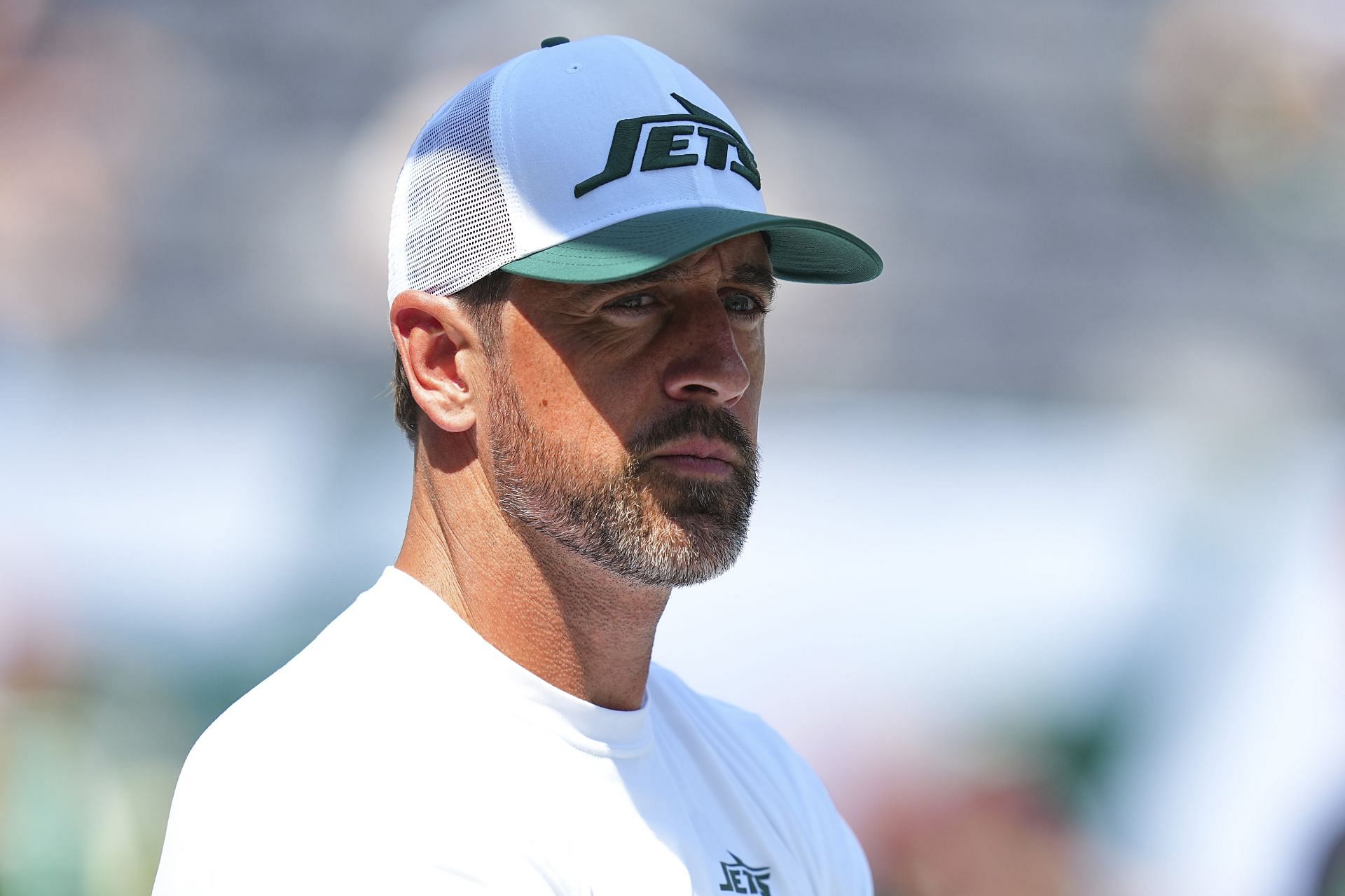
ESPN’s Randy Scott skewers Aaron Rodgers’ midlife crisis consisting of ‘ayahuasca, Egypt trips, and sparring with Robert Saleh’
Aaron Rodgers' personal life and decisions have made more headlines than his NFL career in recent years. The New York Jets quarterback missed the minicamp earlier this summer because of a planned trip to Egypt.
Randy Scott, an ESPN analyst, describes Rodgers' decisions and lack of communication with Jets coach Robert Saleh as a "midlife crisis." Scott said on Thursday morning that Rodgers is 'on the wrong side of 40,' implying that his finest playing days may be behind him.
“He’s on the wrong side of 40. As somebody who’s been through a midlife crisis, and I’ve got four tattoos to show for it. This man’s midlife crisis is ayahuasca, Egypt trips and sparring with his head coach in the media in the biggest city in the world,” Scott said on ESPN.
Stephen A. Smith brushed off Randy Scott's theory on Aaron Rodgers and said that he doesn't believe the quarterback is experiencing a midlife crisis.
Rodgers is looking to get his first full season with the New York Jets underway after suffering a season-ending Achilles injury just minutes into his franchise debut last season.
Aaron Rodgers gave his take on new biography
Author Ian O'Connor's new biography on Aaron Rodgers refutes topics from the New York Jets quarterback's personal life.
His reported feud with his family and past relationships are all discussed in the new book. Rodgers spoke to WFAN about the book, titled "Out of the Darkness," and shared his take on O'Connor's work.
Although Aaron Rodgers didn't ask O'Connor to write the book, he did acknowledge that the author did his research and due diligence to find out more about him.
“He did a lot of research. It had nothing to do with me but he did a lot of research on his own. He’s done a lot of books with other famous people in sports. I think he reached out to 500 people and talked to maybe half those people."
Rodgers also said that he did do an interview with Ian O'Connor and divulged some more information about his life:
"At the end, although he’d written the first draft, we had a conversation and sat down. It was just him asking a few things. A lot of the stuff in there is 20+ years old," Rodgers added.
Rodgers gave credit to Ian O'Connor for the work he did in writing it.